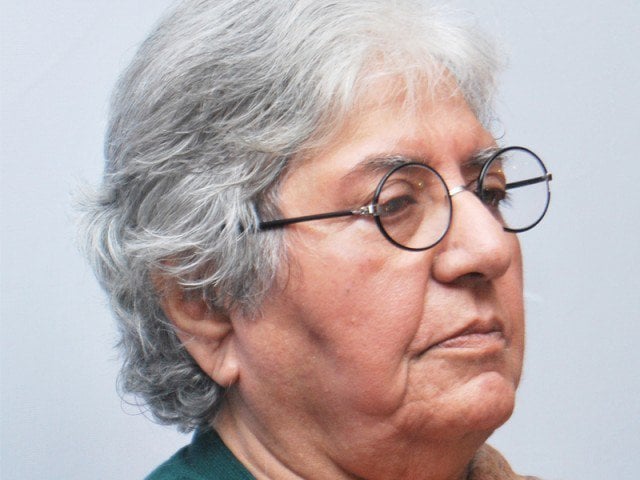
We are not in favor of allocating Sindh’s land to the military and bureaucracy. Our first priority is to expel them – Dr. Hamida Khuhro
[Translator’s note: This is a translation of renowned historian Dr. Hamida Khuhro’s comprehensive interview, originally published in the Sindhi magazine Nao Niapo, Karachi in May, 1986. The interview panel consisted of Advocate Masood Noorani (MN), Journalist Nasir Aijaz (NA) and Faqir Muhammad Lashari (FM), with Mansoor Qadir Junjo’s assistance to the interviewers. Masood Noorani also contributed observation notes from his initial meeting with Dr. Khuhro, which were used as a preamble to the interview. The interview was later included in an anthology that contained interviews of Dr. Khuhro, published in various Sindhi newspapers and magazines.
In 2021, Dr. Hamida Khuhro Foundation, Sindh (Karachi-Hyderabad) published Nao Napo magazine’s interview as a separate booklet with a title of ‘Tareekh Ji Amhon Samhon’ (Face-to-Face with History). The booklet includes a preface by Mansoor Qadir Junejo. Zaffar Junejo]
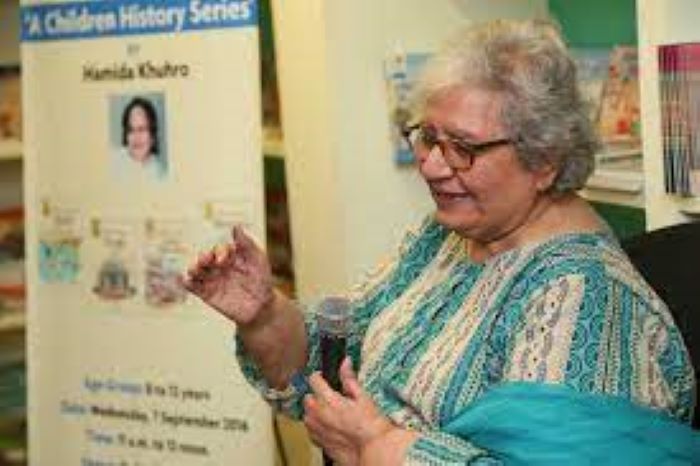 A Sindhi person is someone who speaks the Sindhi language, and his interests are aligned with Sindh – Dr. Hamida Khuhro
A Sindhi person is someone who speaks the Sindhi language, and his interests are aligned with Sindh – Dr. Hamida Khuhro
MN: How do you define a Sindhi person?
HK: A Sindhi person is someone who speaks the Sindhi language. However, there is leniency for outsiders who want to learn Sindhi. If their permanent interests are aligned with Sindh and they intend to become Sindhi, then their children should also learn Sindhi.
MN: If speaking Sindhi language is a requirement to become Sindhi, then Punjabi settlers who speak Sindhi would surely meet the criteria.
HK: Until the One-Unit, Punjabis who settled in Sindh eventually became Sindhi. This was also true for Punjabi migrants before partition, who never considered themselves Punjabis. They always aligned themselves with Sindh. However, once they realized the power of Punjab, they associated themselves with Punjab and behaved as ‘Punjabis’. So, we can say that loyalties change with power.
MN: The whole of Sanghar (district) is filled with Punjabi settlers who speak Sindhi very well. Should we call them Sindhis?
HK: (responds in English). If they have aligned themselves with the interests of Sindh and speak Sindhi, then we are ready to welcome them as Sindhis.
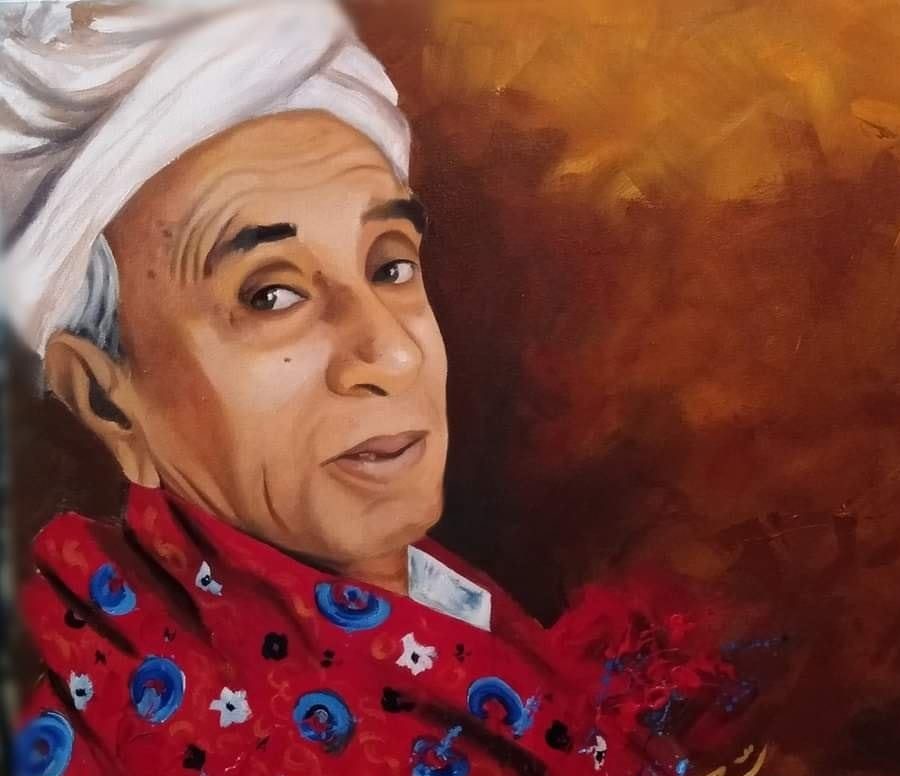
FM: GM Syed has authored a book, “Hanni Pakistan Tutann Ghurgi” (Now Pakistan Must be Broken). In that book, he mentions that if Sindh’s land is divided, each household would receive 3 acres. This indicates a vision for land reforms. How do you view the use of agricultural machines in agriculture and the question of land reform in Sindh?
HK: In fact, there is no land pressure in Sindh. And now, what do we have except the land? Our issue is not about having land but about struggling to reclaim Sindh’s land from land grabbers. We are not in favor of allocating Sindh’s land to the military and bureaucracy. Our first priority is to expel them. However, there is no doubt that “land belongs to those who till it”.
FM: Another question arises that no political party has highlighted or raised questions about people’s needs such as education, health, and housing. None of them have provided constitutional guarantees. What is your opinion on these needs?
HK: All these are basic needs, and they should be integral to any political party’s agenda. Additionally, the fulfillment of these needs should be constitutionally guaranteed. It is the basic right of citizens to have access to clean water, quality healthcare, and better education, among other rights. One should not forget that the Pakistan movement was launched to achieve these rights.
FM: I mean, there is no constitutional guarantee for people’s rights, and in case these rights are not enjoyed, people should be able to challenge the relevant authorities in court.
HK: I agree that people’s rights must be constitutionally guaranteed.
It is undeniable that the military and bureaucracy are institutions influenced by imperialism
FM: There is interference from imperialist forces/ actors in the country’s affairs, and bureaucrats, politicians, and so-called intellectuals also involve themselves and maneuver. How can we manage this situation?
HK: Pakistan’s popular struggle was launched by people who were against imperialism. It is undeniable that the military and bureaucracy are institutions influenced by imperialism. We have not yet dismantled these institutions because our national struggle is still weak. The essence of our struggle is to break free from them. When it comes to imperialism, it is indeed a challenge to rid ourselves of its influence. There is a possibility that their internal conflicts could weaken them, but there is also the fear that we may become targets of a nuclear war. It may or may not happen, or we might be saved.
MN: We have already taken a long time, so allow us to ask some quick questions. How do you view the present political situation of the country?
HK: Taking a long-term view and in an aggregate way, I would say that Pakistan has survived. Immediately after its formation, there were factors that, if allowed to take root and flourish, could have led to Pakistan’s survival. However, in the 1971 war, the Pakistan army was defeated, and Pakistan was broken. At that time, the army was weak, but the government soon revitalized it. It was an opportunity for the government of that time to give equal status to the smaller provinces in all affairs. But the political parties of that time missed the chance. As a result, the military and bureaucracy strengthened themselves and extended their power beyond limits. For the past 8 to 9 years, the country has been under martial law. Even earlier, during Bhutto’s time, Pakistan was heavily influenced by Punjab and the Pakistan Peoples’ Party. If you visit the NWFP, you would see that there is Pakhtunistan, and Balochistan has a different perspective. Presently, Pakistan is only sustained due to the presence of the army, and as long as the military and bureaucracy are supported by foreign forces/imperialists, it will survive. America, Russia, and India all want Pakistan to remain intact, as they view it as a buffer zone that aligns with their interests. Pakistan is like a fragile pot being held together by external pressure and support. If the support is removed, its fragmented parts will fall apart. This is the figurative situation of present-day Pakistan. On the other hand, Punjabis only have the army and now the Pakistan Peoples’ Party as an alternative. They believe that if the Pakistan Peoples’ Party is in power, it will play a role in saving Pakistan. However, all these measures are temporary fixes, and there is no permanent solution. Now the question is whether Pakistan can survive or not? If the concerned parties want to save Pakistan, the only option is equality among the provinces. If Punjabis want to save Pakistan, they have to make sacrifices.
America, Russia, and India all want Pakistan to remain intact, as they view it as a buffer zone that aligns with their interests. Pakistan is like a fragile pot being held together by external pressure and support. If the support is removed, its fragmented parts will fall apart.
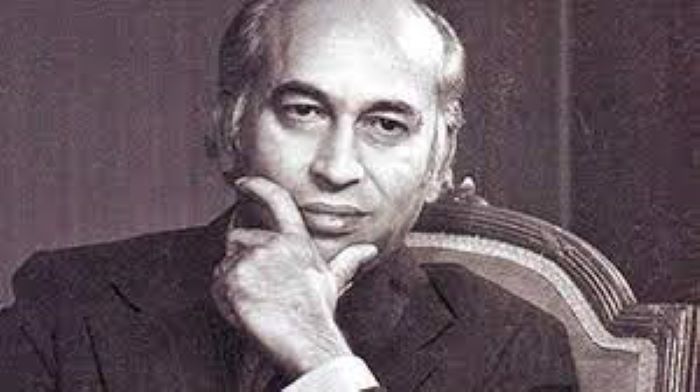
MN: The Pakistan Peoples’ Party demands that the election be held under the constitution of 1973. If elections are indeed held under that arrangement, what would be your reaction?
HK: There would be no benefit. The status quo would remain the same, with the continued hegemony of the army and bureaucracy. They don’t have any revolutionary program.
MN: at least the leadership of the Pakistan Peoples’ Party is Sindhi – Zulifikar Bhutto was Sindhi, and now Benazir Bhutto is Sindhi, they belong to Sindh. There must be some benefit.
HK: Benefit for Sindhis.
MN: Yes, benefit for Sindhis.
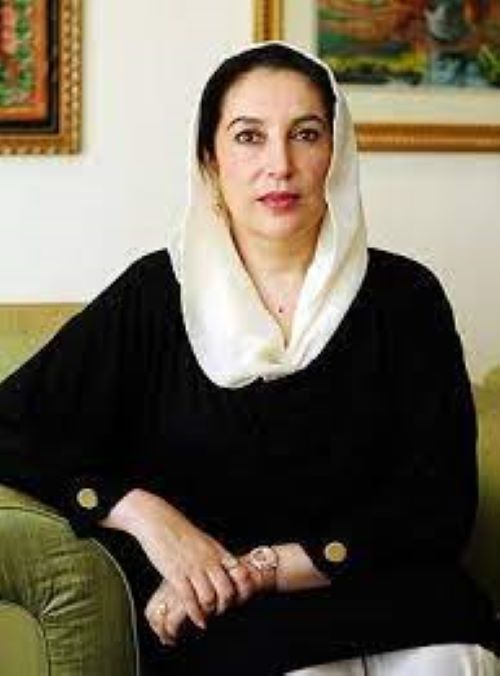
HK: Bhutto provided benefits to Sindhis – jobs, etc. But there were no constitutional guarantees to ensure the continuation of those benefits. The guarantees were important, so even their departure wouldn’t disturb job security of Sindhis. So, there should have been constitutional guarantees and the realization of those guarantees. If the Pakistan Peoples’ Party now thinks along those lines and takes some measures, then it could extend its tenure. The same is true for Bhutto Sahib – if he had retained guarantees for people’s rights, his survival might have been extended.
MN: If the Pakistan Peoples’ Party secures such guarantees, will you support it?
HK: If the Pakistan Peoples’ Party comes into power and secure conditional guarantees for the small provinces – autonomy, equality in all affairs – then we would cooperate with it. Otherwise, we would continue our struggle.
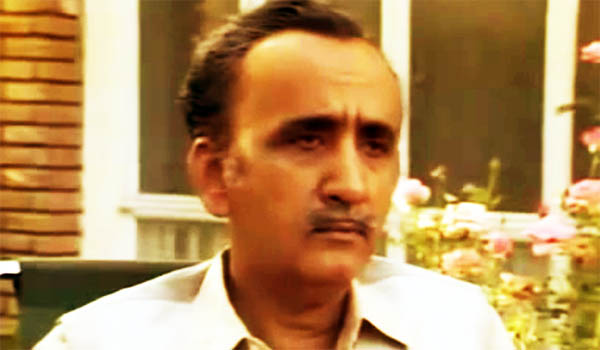
MN: What is your opinion about Muhammad Khan Junejo’s government?
HK: The present government is playing its limited role. We can call the present government a model of controlled democracy. Iskander Mirza used to state that the country needs controlled democracy, and he intended to implement it with the help of the army.
In fact, Punjab’s lifeline is Sindh’s coast. Nowadays, Punjab is a powerful country, like England was in the 19th century
MN: He even used to say that people are not able to manage democracy and labeled them illiterate.
HK: Yes, he used to say that people are illiterate, but before him, the purpose of controlled democracy was generally the colonization of Pakistan, particularly Sindh. In fact, Punjab’s lifeline is Sindh’s coast. Nowadays, Punjab is a powerful country, like England was in the 19th century – at that time, England’s character was expansionist and it established colonies around the globe. Likewise, Punjabis present character seems expansionist. I am not sure how solid it is, but there is no doubt that Punjab is a powerful and intends to establish its colonies. We are in its way, and we would be prey. Until Punjab can make Sindh its colony, there will be no democracy, and we won’t get basic human rights.
FM: You have discussed parity, but there is a continuous flow of people into Sindh. If it continues, Sindhis will become a minority.
HK: We should achieve parity before becoming a minority. It is essential to our struggle. (Continues)
Click here for Part-I and Part-II (Preamble) – Part-!II , Part-IV , Part-V , Part-VI , Part-VII , Part-VIII , Part-IX, Part-X, Part-XI, Part-XII
____________________
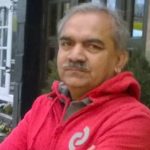 Dr. Zaffar Junejo is a historian and a writer, having earned Doctorate from the Department of History University of Malaya, Malaysia. Presently, Mr. Junejo is associated with the European University Institute, Florence, Italy. Apart from scholarly contribution, he also writes for popular media. He could be accessed at: Email junejozi@gmail.com, Cell/WhatsApp +92 334 045 5333 Skype Zaffar.Junejo Facebook facebook.com/zaffar.junejo
Dr. Zaffar Junejo is a historian and a writer, having earned Doctorate from the Department of History University of Malaya, Malaysia. Presently, Mr. Junejo is associated with the European University Institute, Florence, Italy. Apart from scholarly contribution, he also writes for popular media. He could be accessed at: Email junejozi@gmail.com, Cell/WhatsApp +92 334 045 5333 Skype Zaffar.Junejo Facebook facebook.com/zaffar.junejo